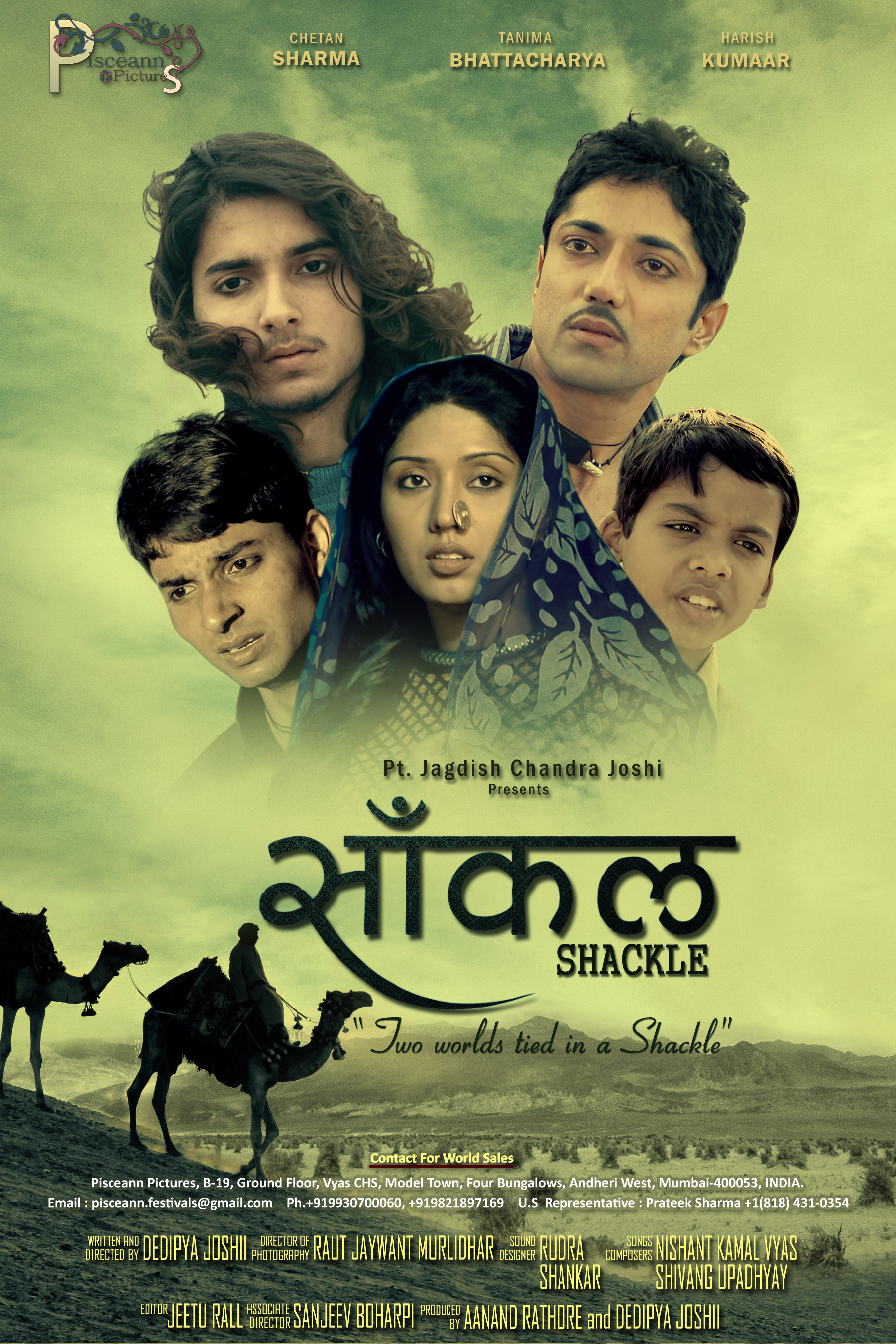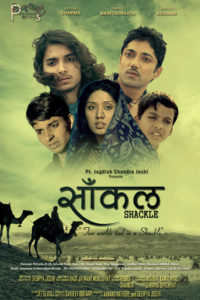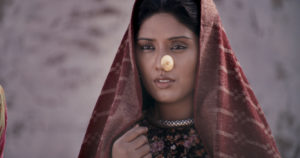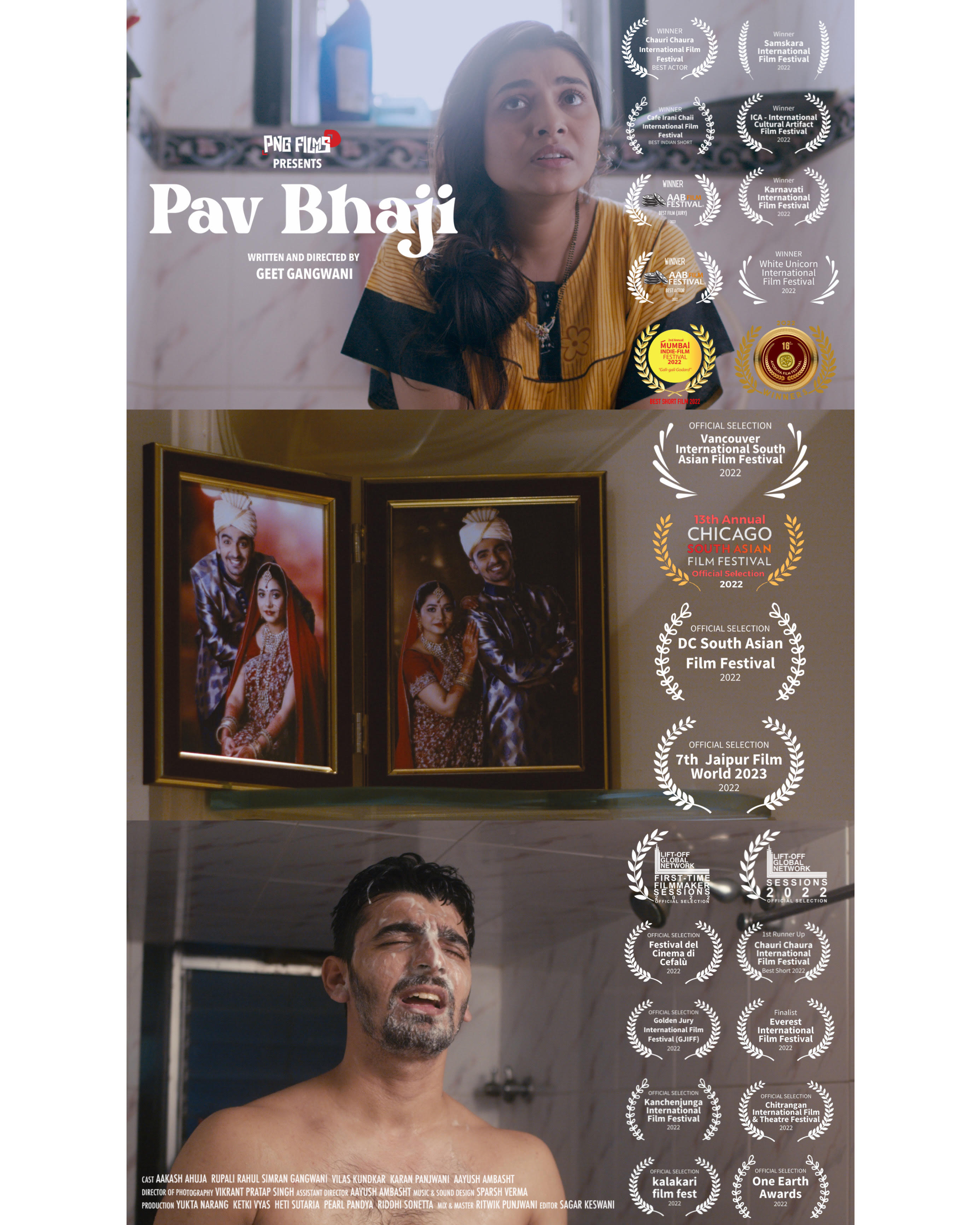
India Independent Film Review “Saankal (Shackle)”
WATCH THE TRAILERS HERE & HERE
First, the Recap:
To constrain, obstruct, or hinder is to prevent opportunity for growth or to experience the unfolding of given circumstances in the ways they were intended to be, instead forced to accept a means by which one will feel chained rather than free. If this is the situation, especially when applied to human beings, what possible benefit can arise from it? In the deserts of Thar stands a remote village named Khetu ki Dhani, where an unwelcome yet demanded tradition is taking place–the marriage of young boys to unwed, aging girls in an effort to maintain the community’s “purity”. One such 11-year old boy named Kesar (Samarth Shandilya) awaits his betrothal to 26-year old Abeera (Tanima Bhattacharya), a situation neither is pleased with. With him just a child striving to be educated and her seeing an impossible union, the two simply exist in their own lives, together yet far apart.
However, as time moves on, certain facets of being a husband begin to slowly dawn on a now teen Kesar (Chetan Sharma), thus his appreciation for his older bride finally begins to find fruition, even though Abeera’s life to this point had been anything but happy, and potential hope is birthed. But, when an incident occurs with his father Usmaniya (Harish Kumaar) that causes Kesar to flee his family for a period of time under the watchful guidance of close friend Apoorva (Milind Gunaji), he eventually returns to an even harsher reality that can only lead to further heartbreak and terrible reminders of the toll this forced marriage has wrought on him and Abeera. Soon, it is only a question of whether Kesar can salvage anything good from it all while not seeing the same fate happen to others.
Next, my Mind:
While wrapping its realistically sobering, based-on-true-events themes within a fictionalized package, there is simply no getting past the uncompromising, unyielding, resolute, and, frankly, inconceivable actuality being depicted in writer/director/co-producer Dedipya Joshii’s 99-minute feature film. Tackling the truly detestable malpractice that literally paired boys with young adult women as husband and wife solely for the sake of keeping a community free of inter-cast marriages, the narrative unflinchingly paints the portrait of a village’s cultural rituals, taboos, and social duties with brutal efficiency plus intentionally abrasive language and visuals in order to make its point to the viewer, maximizing the purposed impact, even as we watch the stark ramifications the events conveyed have on all involved. It’s an awareness-raising endeavor as, while rare, the actual malpractice still exists in the real world, which is chilling in itself, given the history of abuse against childhood and women it represents. Moments of joy are present here, but uncommon.
As we follow the character of Kesar through multiple stages of his life, the role therefore demanded a total of three actors to portray him. Shandilya wonderfully enacts the young 11-year old boy whose real desire and focus is just to be a kid and get a solid education. Instead he finds himself being imposed upon to actually marry a woman over twice his age. His demeanor towards her and around her is more mother/child to say the least, which only makes it all more disturbing in trying to turn a child into a man. Sharma takes over wonderfully as the teen version of Kesar, who’s already had to come to a startling realization about certain aspects of this marriage, but still manages to enter a more joyful stage of the relationship that Abeera can accept gratefully. But there’s still the impetuousness and unrefined attitudes of a teenager at play, and mistakes Kesar makes have a price to pay, and Sharma hits the emotional and dramatic content with poise. Finally, there is Jagat Singh as the young adult Kesar, who actually begins the film overall, seeing his own story via flashback as his tale is read to him as he journeys back home. All three actors very much put full passion into the role, effectively giving us the totality of the character.
Bhattacharya is just excellent as Abeera, a beautiful young woman entering into an arrangement with completely half-hearted “joy”, knowing that there’s more than enough reasons why it should never happen this way in the first place but, like Kesar, finds herself with no free will and at the relentless “mercy” of a societal demand that will further strip her of identity, dignity, and soul. Only those fleeting moments when Kesar has reached an age where he can understand what it is to love her both as a woman and wife is there any sense of release for her beyond the horrid mistreatment she endures. The emotional torment inside and out Abeera withstands is hard to witness, and Bhattacharya nails it. Solid supporting turns appear here from Kumaar as Kesar’s less than genuinely loving father Usmaniya and Gunaji as Apoorva, the photographer/”father” figure to Kesar, along with Shankar, Sanjeev Boharpi, Jay Joshi, and Ramkaran Chaudhary, among others. In total, “Saankal (Shackle)” is well-written, strongly presented indie cinema with a potent message, emotional reverberation, and social significance which we hope lends a influential hand in making sure this practice never, ever gets to continue in any form, anywhere.
As always, this is all for your consideration and comment. Until next time, thank you for reading!





Wow.. it’s appropriate review of saankal, thanks dear ☺️☺️